Why China NOT Being Democratic Is Not A Bad Thing, And Why Being Anti-China Impacts Negatively On Race Relations In Australia
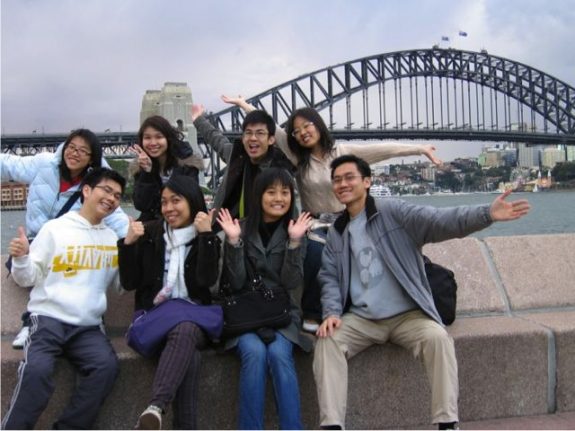
You may be wondering why I am writing about this topic, considering how contentious and controversial this topic/question is. But I think it needs to be discussed because there seems to be people who have some weird preconceived notions about China and how it is so “non-democratic” and how this is somehow bad. I mean, we know that China does not employ a “democratic” system of Government, but its people are far from oppressed. Chinese netizens are now more than ever extremely vocal about issues to do with politics – both domestically and globally. Social media platforms such as WeChat, QQ and WeiBo are just as or are even busier than Twitter and Facebook, and the Chinese are becoming a lot more economically secure which shines a positive light on how the Government has conducted itself.
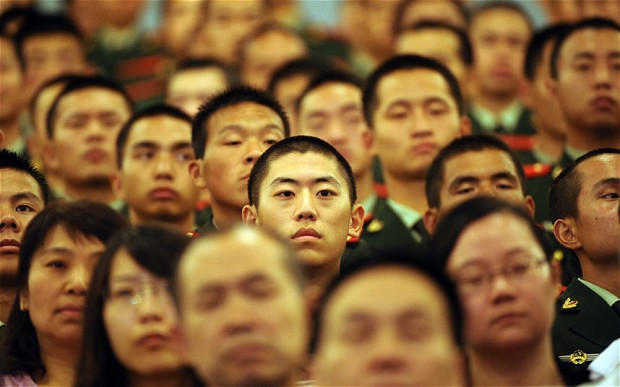
Now, this is not saying that China is perfect – hell no – it is far from perfect in terms of how it conducts itself diplomatically as well as its human rights record. However, this has nothing to do whether it is a democracy or not, it is actually on the contrary. Look at the human rights record in the West and Europe – democracy has not created any improvements. China has prospered despite its one system/party governance – so really why change? I mean there is no reason for China to change its current system of governance.
China’s political system has slowly transformed stage by stage from a Mao ruled Communist regime, to a socialist sphere during Deng Xiaoping’s time to now a cross between socialism with glimpses of capitalism. It is because of this slow transformation which has allowed China to grow both economically and politically. Yes, we know there is still a huge gap between rich and poor, but really where in the world, is there no gaps? Politically, China is asserting its dominance in Asia and the world and it has done so because it feels that this is its entitled position, good or bad. However, I will critique that its methods of diplomacy needs to change in terms of how it deals with situations in Asia – such as North Korea, the South China Sea debate, Hong Kong, Tibet and Taiwan. I mean China still holds the thinking of “divide and conquer”, where it needs to more so, adopt a discuss and compromise approach. Eventually it will move in that direction, with generational changes and the global outlook of its future leaders.
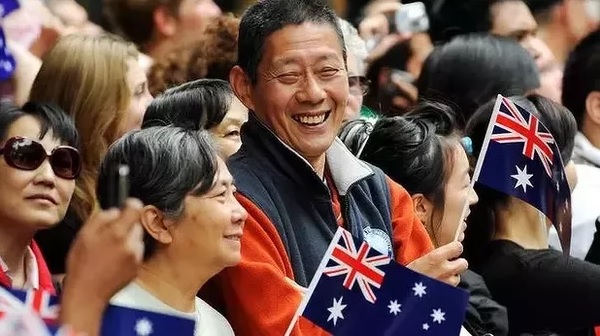
The interesting part of this is, this economic prosperity and global influence has allowed many Mainland Chinese the opportunities to be more mobile, in terms of setting up businesses, making investments and going overseas to establish their bases in both studying, living and working. However, it seems that the Western society has not exactly accepted/embraced the Mainland Chinese – well that is the court of public opinion. So for the purposes of this article, let’s use Australia as the example, considering the mainstream populace view is that Australia is being “invaded by the Chinese”. Many people in Australia still view China as a “communist” nation where its people have no freedoms and are all oppressed and somewhat backward. As I have already demonstrated earlier, this is not actually true. The Aussies who believe this rhetoric are believing in delusions of democracy. Remember, democracy isn’t perfect just look at the inequalities in Australia in terms of race relations, asylum seekers and treatment of our Aboriginal and Torres Strait Islander communities. They are also being brainwashed by what the Government, other political parties and mainstream news and media says in terms of how the rise of Mainland China should be viewed. Of course we in Australia do not want too much foreign investment, and of course we want to keep our jobs domestically, but if you as a nation plan to demonise and promote hateful rhetoric towards Mainland Chinese investments, please also gloss your eyes and ears over the investments made by the US, Canada, NZ and other nations in the West and Europe.
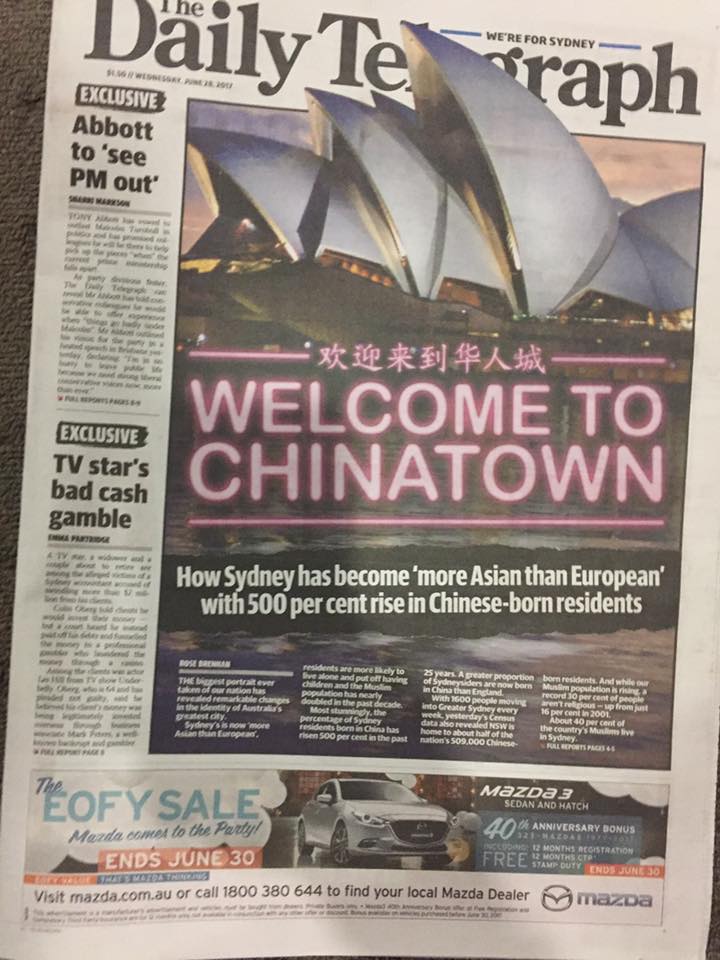
Look at how the entire political donations fiasco blew up in Australia, with the media hounding on politicians who accepted major donations from huge Mainland Chinese companies, and how this led to the suspicions over the role that Chinese international students play in terms of “spying” for the Chinese Communist Party (CCP), and all other rumours about double agents, monitoring devices and calls for Chinese investment to not be accepted in Australia. Many of these rumours and claims have some truth to it, but most if not all are exaggerated in terms of its magnitude. I can safely say, the Chinese international student rumours are untrue and believe it or not China is not the largest investor in Australian property and natural resources.
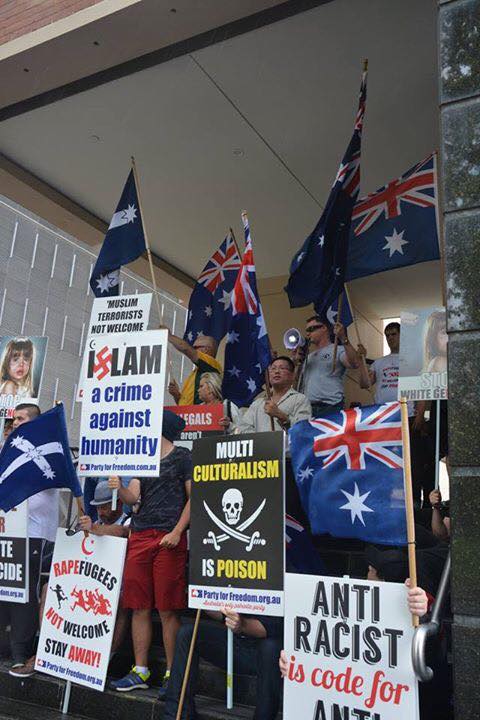
The other issue is that there are Chinese and Asians in Australia (many who come from different parts of the Asian regions) who hold certain geo political views which are negative towards Mainland China. Their negative views should be directed at the Chinese Government and really that is their prerogative to do so. However, instead of just aiming their negative thoughts towards the Government, their hate is aimed towards China as a whole and this includes Chinese people. This is where the negative impacts occur and the environment of hate just festers. Their negative thoughts are then used as a validation mechanism by the Australian mainstream society to feel that being anti-China and throwing out racist statements towards anyone who looks Chinese is normal and acceptable, because they are also negatively looked at by their own.
Now I am not of Mainland Chinese origins – I am Australian born Malaysian Chinese, so before anyone labels me a Chinese spy, please read what my own personal perspectives are and where my opinions derive from. I think as a final point, the way to move forward and ensure that we maintain Australia as an inclusive society with the Mainland Chinese (whether they come as investors, workers, residents and students) is to engage, engage, and engage! There are many who come as international students or as holiday visa workers and they even feel ostracised/isolated from the Australian mainstream society. The mainstream Australian media has many to believe that these international students come to study in Australia, either as “princelings” (arrogant/spoilt kids from ultra-rich Chinese families) or as spies. And where a small percentage probably are from this situation, there are many who are not with the vast majority coming from upper middle/class families or in the case of holiday visa workers most likely middle class. Many of these younger generations have no personal experiences with Mao and the Cultural Revolution, and they come to study abroad, not just for education reasons, but to also understand how Australia’s political and civic system works.
Like what we do at The AIMN?
You’ll like it even more knowing that your donation will help us to keep up the good fight.
Chuck in a few bucks and see just how far it goes!
Your contribution to help with the running costs of this site will be gratefully accepted.
You can donate through PayPal or credit card via the button below, or donate via bank transfer: BSB: 062500; A/c no: 10495969










10 comments
Login here Register here-
lawrencesroberts -
Robert REYNOLDS -
Michael Taylor -
Matters Not -
Stephen Brailey -
Joseph Carli -
Zoltan Balint -
jimhaz -
Paul Teo -
wam
Return to home pageChina has all those Billionaires running things badly, just like here.
Thanks for your article Erin.
If I may, I would like to make a couple of comments in reply. I should say that I am no expert on China but I have tried to follow the main events that have occurred there over my lifetime. When you stated in your essay that,
“China’s political system has slowly transformed stage by stage from a Mao ruled Communist regime, to a socialist sphere during Deng Xiaoping’s time to now a cross between socialism with glimpses of capitalism.”
I was a bit taken aback, especially with the “glimpses of capitalism” comment. I have only spend a total of about 6 weeks in China and what I saw there looked like more than just “glimpses of capitalism”. I saw extremes of poverty and opulent wealth that would make the Americans blush (well perhaps that is a bit of an exaggeration, but you get my general feeling).
I was a supporter of Mao for a while when he ran the country. But since that time I have met people who lived under his rule and and I have changed my mind a little. I now have a very close relationship with a Chinese born lady who lived in China when Mao was running the country and her view of him is that he was about 80% bad and 20% good. A major contributing factor to the “80% bad” assessment, was his support for the so-called “Cultural Revolution” which I now agree was an act of madness.
However I now see the present day China as being riddled from bottom to top with corruption, nepotism and cronyism. Corruption, or hongbao, is evident in many areas, for instance, in the health sector, see,
and in the education sector, see,
I have heard it said that the gap between the rich and poor now is greater than is was before the revolution. Sure, the standard of living has risen for those living in the major cities such as Shanghai and Beijing, etc. but there is still much poverty among those who, for whatever reason, are still living in the countryside.
China has embraced many of the superficial and decadent aspects and qualities that are apparent in many western capitalist, democratic societies. To call China a “Communist” country is risible. To me, China has a one-party, state capitalist, form of government. I still have not been able to work out whether President Xi Jinping is making a genuine effort to address these problems or whether he is securing his hold on power. Perhaps it is a combination of both?
I find your comment that,
“Yes, we know there is still a huge gap between rich and poor, but really where in the world, is there no gaps? ”
to be, with all due respect Erin, to be a little glib. You cannot excuse the wealth gaps that exist in China that easily.
Now Erin, a quick response to your claim that,
“…..considering the mainstream populace view is that Australia is being “invaded by the Chinese””
Although I feel that Australia is becoming overpopulated, the number of people with a Chinese background in the community is not a concern for me at all. Why? Well I find that the Chinese are, in general, great people. I find that I tend to gravitate to their company because they are polite, intelligent and value education. They, like me, in general, show little interest in drinking alcohol and sport. Although I do notice that some have a weakness for gambling.
I am a secondary teacher and I have taught at a Chinese run tutoring college for over 15 years now. This school has a very low staff turnover rate, presumably because there are far few hassles teaching there than in a normal school. My feelings toward the Chinese immigrants are different than the feelings I have for some other immigrants who come here bringing with them alien religious and cultural practices which are inimical to Australian values.
As far as your comments on the Chinese attempting to buy influence at the political level and allegations of the Chinese Government using certain students to spy on the activities of other Chinese students, well Erin, you are going to have to support your efforts to play down these claims with some solid evidence, otherwise I will be taking more notice of what was shown on the 4-Corners episode entitled “Power and Influence” that was broadcast on the ABC on Monday 5th June, 2017. See,
http://www.abc.net.au/4corners/stories/2017/06/05/4678871.htm
Much of the rest of your article contains comments that, while I note them, are not ones that I feel strongly enough about to comment upon.
My final remark is one that I frequently make to my very close Chinese friend, and that is “What China needs now is a Communist Revolution!!”
Very interesting article, Erin. I learned so much from this.
And I never thought you were a spy, by the way. ?
Certainly not an expert on China. Only been there a few times and on a tourist visa. But I have offspring who are regular visitors for business reasons. It seems to me (and them) that China reveals more than glimpses of capitalism. Indeed if I were a visitor from another planet I could be forgiven that China (along with ‘communist’ Vietnam) is aggressively more capitalist when compared to Australia, US and the like – and the people seem proud of that. Perhaps not in word – but certainly in deed.
As with most (all) capitalist Nations, corruption is rife – and at all levels. In China and elsewhere in Asia, corruption is accepted as being ‘natural’. (Why have power and not use it for personal advancement or the advancement of relatives and friends. Thus more likely to be realists.) Enjoyed reading your article.
Great article Erin. If Australians want to rant hysterically about foreign invaders grabbing “our” land and natural resources maybe they ahould look more carefully at the American and British investment practices?!
You can tell a persons character NOT necessarily by their greater mistakes or efforts , than by their behaviour with the small things in life..For instance..:
I was told this incident by the son of a lady who, whilst digging for small change at our local delicatessen, run by a “respectable” man and JP. of the district, she dropped her purse, the coins bouncing and rolling everywhere..as she bent to pick them up, she saw out of the corner of her eye, this same “respectable” man surreptitiously slip his shoe over a florin piece next to his foot and drag it back to himself…she was shocked too much by this churlish action to confront him..but it did sour her feelings toward him evermore..
With these “gifts” from Chinese business people and the Chinese Govt’..could it be THEIR method of “testing” who are the cheapskates in Oz politics and business circles and who can or cannot be trusted?….It’s a method I have sometimes used when I was dealing with customers in the building trade to ascertain if they had honourable intentions to pay when time was due.
It appears that you are confirming that it does not matter what political system people live under, communist where the state rule, socialist where everyone should or democratic where the most vocal do. The individuals will still find ways to express the same human needs and wants. If I can add, it does not make any difference what shape or colour pot you use to cook dinner you will cook it.
[Of course we in Australia do not want too much foreign investment, and of course we want to keep our jobs domestically, but if you as a nation plan to demonise and promote hateful rhetoric towards Mainland Chinese investments, please also gloss your eyes and ears over the investments made by the US, Canada, NZ and other nations in the West and Europe]
The article does not change my opinion about Chinese investment in Australia where it relates to land, housing, ports, mining, agriculture or any sort of utility one iota.
I do not gloss over non-chinese investment in those areas either, however they cause less emotion as we have such a long peaceful interconnection that we do not have with China.
Personally I would ban any further foreign investment even if it was to cause a recession – they can buy and sell what is already foreign owned, but not new things -s o the banning would be a sort of OS owned quota limit. Chevron would be banned from any sort of ownership.
Erin, I think and feel your article is generally good. You present Asian perspective on China. This is good as I am sick of western media demonizing China as if AngloCeltic are more superior . As a human being we all have strength and weakness. Whereas colonial attitude are hypocrisy.
Many people in Australia still view China as a “communist” nation where its people have no freedoms and are all oppressed and somewhat backward. Unfortunately our robb was one and the CFTA is a testament to his understanding of mandarin.Been to hongkong recently full of tourists from china, Different from the past but better???